What if the oldest secrets about God, humanity, and eternal destiny were hidden in books many no longer read?
He Old Testament It is much more than a collection of religious texts from the past. It is the God's first great revelation to humanity, the beginning of a story of love, justice, promises and redemption that continues to transform lives today.
From the creation of the universe to the promise of a Messiah, the Old Testament reveals:
- How the relationship between God and human beings began
- What role does Israel play in the history of salvation?
- What laws, wisdom and prophecies shaped entire generations
- And how all this points toward perfect fulfillment in Christ
In this article you will discover The structure, key themes, current relevance, and direct connection of the Old Testament to your faith.
Are you ready to look at these ancient writings with new eyes?
What is the Old Testament and why is it essential to know it?
What if the beginning of all salvation history is right where many choose not to read?
He Old Testament It is much more than a collection of ancient texts. It is the foundation upon which the entire biblical narrative is built. It contains the first 39 books of the Christian Bible, written in Hebrew (and some portions in Aramaic), which narrate from the creation of the world to the return of the Jewish people from exile.
Knowing the Old Testament is essential because:
- Reveals the character of God: just, holy, merciful and faithful.
- Presents the messianic promises which are fulfilled in Jesus Christ.
- It exposes the human condition of sin and the need for redemption.
- Offers wisdom, poetry and prophecy with timeless power.
It is not an obsolete book nor replaced by the New Testament, but the living root of a progressive revelation culminating in Christ.
What role does it play in the Christian Bible?
The Old Testament forms the first major section of the Bible, and although its name may suggest antiquity or expiration, its function remains vital:
- Prepare the way for the gospel message.
- Gives theological, historical and spiritual context to the writings of the New Testament.
- Contains the God's first alliances with humanity, which are key to understanding the new covenant in Jesus.
- Provides eternal principles of justice, mercy, faith and obedience.
Without the Old Testament, the reader loses half the story of redemption. It's like reading only the ending of a novel without knowing its plot.
The link between the Old and New Testaments
The Old and New Testaments are not rival or opposing books, but two parts of the same unified story.
- The Old Testament prophesies, announces and prepares; the New Testament fulfills, reveals and explains.
- The figures of the Old (Adam, Moses, David) are types or shadows that point to Christ.
- Jesus himself stated: “Do not think that I have come to abolish the law or the prophets… I have come to fulfill” (Matthew 5:17).
Both testaments need each other. Together they form the Complete, coherent and living Bible, which reveals the heart of God and his plan of redemption for humanity.
Composition of the Old Testament
How many books do you have and how are they organized?
The Old Testament is composed of 39 books in most Protestant Christian Bibles. These books cover a broad historical period, from the creation of the world to the return of the people of Israel from exile in Babylon.
The traditional Christian organization classifies them into four groups:
- Pentateuch (5 books): Genesis, Exodus, Leviticus, Numbers, Deuteronomy.
- Historical books (12): From Joshua to Esther.
- Poetic and wisdom books (5): Job, Psalms, Proverbs, Ecclesiastes, Song of Songs.
- Prophetic Books (17): Divided into major prophets (Isaiah to Daniel) and minor prophets (Hosea to Malachi).
This structure facilitates the thematic and chronological study of the history, faith, and law of the people of God.
Division in the Hebrew and Christian Bible
The Hebrew Bible (Tanakh) contains the same books as the Protestant Old Testament, but organized differently and in 24 books due to combinations of texts.
Structure of the Tanakh:
- Torah (Law): Genesis to Deuteronomy.
- Nevi'im (Prophets): Joshua, Judges, Samuel, Kings, and the prophetic books.
- Ketuvim (Writings): Psalms, Proverbs, Job, Ruth, Song of Songs, Ecclesiastes, Lamentations, Esther, Daniel, Ezra-Nehemiah and Chronicles.
The Christian Bible rearranges the books with a theological logic: first the Law, then history, followed by poetry and finally prophecy, leaving Malachi as the last book, anticipating the Messiah.
Literary genres in the Old Testament: law, history, poetry and prophecy
The Old Testament is composed of a wealth of literary genres, making it a diverse and multifaceted work.
- Law (Torah): Rules, commandments and principles that govern the life of God's people (Exodus 20; Leviticus).
- History: Narrations that recount real and theological events of Israel as a nation (Joshua, Kings, Chronicles).
- Poetry and wisdom: Hymns, prayers, proverbs and philosophical reflections on life (Psalms, Proverbs, Job).
- Prophecy: Divine messages communicated by prophets, with judgments, warnings and promises of restoration (Isaiah, Jeremiah, Amos).
These genres show the communicative richness of God with his people, through laws, stories, songs and eternal prophecies.
Historical and cultural context of the Old Testament
The main historical stages of Israel
The Old Testament narrates the history of the people of Israel, from its origins to its restoration after the exile. These are its key stages:
- The patriarchs: Abraham, Isaac, Jacob and Joseph (Genesis).
- Slavery in Egypt and Exodus: Moses leads the liberation (Exodus).
- Conquest of Canaan: Joshua leads the people to the promised land.
- Time of the Judges: time of spiritual anarchy (Judges).
- Unified monarchy: reign of Saul, David and Solomon (1 and 2 Samuel, Kings).
- Division of the kingdom: Israel (north) and Judah (south).
- Exile in Assyria and Babylon: punishment for disobedience.
- Return from exile: Under Cyrus of Persia, reconstruction of the temple and walls (Ezra and Nehemiah).
Each stage shows God's dealings with his people in faithfulness, judgment, and restoration.
Cultural influences of the ancient Middle East
The Old Testament was written in a context of interaction with great civilizations as:
- Egypt: influences on themes such as the exodus, the pharaoh, and the plagues.
- Babylon and Assyria: powerful kingdoms that conquered and exiled Israel.
- Canaanites, Hittites and Philistines: neighboring peoples with religions and idols that constantly tempted Israel.
- Persians: They allowed the return from exile and offered religious freedom.
Understanding these cultures allows us to better interpret many passages, practices, and conflicts reflected in biblical texts.
Original languages and the Semitic world
The Old Testament was written mainly in Hebrew, with some sections in Aramaic (parts of Daniel and Ezra). Both languages are Semites, with common linguistic roots.
Characteristics of Biblical Hebrew:
- Rich in symbolism, parallelism and repetition.
- Expressive and concrete, ideal for poetry and prophecy.
- It reflects the worldview of a people oral, agricultural and deeply religious.
Know the languages and expressions of the Semitic world enriches the understanding of key terms such as “shalom”, “Torah”, “hesed”, and others that do not have an exact equivalent in Spanish.
Books of the Law (Torah or Pentateuch)
Genesis: Creation, the Patriarchs, and the Promise
Genesis It is the first book of the Bible and of the Pentateuch. Its name means "origin," and it fulfills precisely that purpose: to narrate the origin of the world, of sin, of the people of Israel and of the promise of redemption.
Key thematic axes:
- Creation of the universe and of the human being (Genesis 1–2).
- The Fall and the Consequences of Sin (Genesis 3).
- The Flood and the New Beginning with Noah (Genesis 6–9).
- The patriarchs: Abraham, Isaac, Jacob and Joseph, and the divine promise of descendants and a land.
Genesis establishes the theological basis of the entire Bible, showing a creator God, just and faithful to his promise.
Exodus: Liberation and the Covenant at Sinai
Exodus narrates the founding event of Israel as a nation: the liberation from slavery in Egypt and the formation of the covenant with God on Mount Sinai.
Highlights:
- God calls Moses to free his people (Exodus 3).
- The Ten Plagues who confront Pharaoh.
- The passage of the Red Sea, symbol of salvation and freedom.
- The delivery of the Law and the Ten Commandments (Exodus 20).
- The construction of the tabernacle, meeting place between God and Israel.
Exodus shows that God He frees, instructs and dwells among his people, and calls him to live in holiness and obedience.
Leviticus, Numbers, and Deuteronomy: Laws, Census, and the Path to the Promised Land
These three books complement the narrative of the exodus with detailed instructions for life, worship, and government of the people of God.
- Levitical: emphasizes the holiness of God and regulates worship, sacrifices, purity and festivals (Leviticus 11:45).
- Numbers: named after the censuses of the people, narrates his journey through the desert and the challenges of lack of faith.
- Deuteronomy: is the repetition and explanation of the law before entering Canaan. Contains Moses' final speeches and Israel's spiritual preparation.
These books emphasize that the law was not a burden, but A guide to living in communion with God and reflecting His character.
Historical Books: The History of Israel as a Nation
From Joshua to Esther: Conquests, Kings, and Exile
Historical books range from the entrance to the Promised Land until the return from exile in BabylonThey show the political, spiritual and moral development of Israel.
Timeline:
- Joshua: conquest of Canaan and division of the land.
- Judges: cycles of disobedience, oppression and liberation.
- 1 and 2 Samuel: transition to the monarchy with Saul and David.
- 1 and 2 Kings and 1 and 2 Chronicles: history of the kingdoms of Israel and Judah, until their destruction.
- Ezra and Nehemiah: restoration of the temple and the law after the exile.
- Ester: account of divine providence during the exile in Persia.
These books show that Faithfulness brings blessing, and rebellion, consequences, but also that God does not abandon his people.
Spiritual lessons in the history of Israel
More than just chronological records, historical books are loaded with spiritual and moral lessons.
Recurring lessons:
- The importance of obey God above the circumstances.
- The consequence of to turn away from the law and worship idols.
- The central role of the worship, repentance, and restoration.
- God uses so much faithful men as unexpected instruments to fulfill their plans.
Each stage of Israel's history is an invitation to reflect on the relationship between God and his people, then and now.
God as the main actor in the course of history
In historical books, God is not a spectator: he is the invisible protagonist who moves, corrects and directs events.
Clear examples:
- He tears down walls in Jericho without lifting swords (Joshua 6).
- He raises up judges and prophets to restore the people (Judges 2:16).
- He chooses kings according to his own heart, like David (1 Samuel 13:14).
- He even uses pagan empires as instruments of judgment or restoration (Isaiah 45:1).
The biblical story is not linear or human: it is a divine narrative that shows that God reigns over time, nations and hearts.
Poetic and wisdom books: divine wisdom for life
The Psalms: hymns of worship, lament, and hope
The book of the Psalms It is a collection of 150 poetic compositions, used by the people of Israel as hymns for worship, prayer and spiritual reflection.
Main themes:
- Praise and gratitude for the greatness of God (Psalm 100).
- Lament and cry in the midst of pain (Psalm 22; 88).
- Trust and hope in divine protection and justice (Psalm 23; 91).
- Sincere repentance and restoration (Psalm 51).
The Psalms are timeless because give voice to every human emotion, and they teach us to relate to God with sincerity, reverence and faith.
Proverbs and Ecclesiastes: practical and existential wisdom
Proverbs offers practical wisdom for daily life, while Ecclesiastes reflects on the meaning of existence from a profound and often provocative perspective.
- Proverbs It is full of short phrases that teach about family life, work, relationships, language, justice, and the fear of God.
Example: “The fear of the Lord is the beginning of wisdom” (Proverbs 1:7). - Ecclesiastes, attributed to Solomon, examines life from a philosophical and realistic perspective:
“Vanity of vanities, all is vanity” (Ecclesiastes 1:2).
He concludes that the purpose of life is fear God and keep his commandments (Ecclesiastes 12:13).
Both books show us that Divine wisdom is key to living with purpose, integrity, and discernment.
Job: Human Suffering in the Face of God's Sovereignty
The book of Job raises one of humanity's deepest questions:
Why do the righteous suffer?
Summary of its contents:
- Job, a righteous man, loses everything without explanation.
- His friends try to find human reasons for his suffering.
- Job cries out to God, and finally God responds, not with explanations, but with a revelation of his greatness.
Key message:
God does not always explain the reason for suffering, but calls to trust in His sovereignty, justice, and eternal purpose.
Job teaches that True faith persists even when there are no easy answers.
Prophetic Books: God's Voice for His People
Major Prophets: Isaiah, Jeremiah, Ezekiel, and Daniel
They are called "elders" because of the length of his writings, not because of their importance. These books contain visions, warnings, promises, and momentous revelations.
- Isaiah: announces judgment on Judah and other nations, but also the coming of the Servant Messiah (Isaiah 53).
- Jeremiah: proclaims the fall of Jerusalem, denounces idolatry and speaks of a new covenant in hearts (Jeremiah 31:31).
- Ezekiel: combines shocking visions with calls to repentance and promises of spiritual restoration.
- Daniel: It narrates historical events and apocalyptic visions about the kingdoms of the world and the eternal kingdom of the Son of Man (Daniel 7:13-14).
These prophets show a God who He speaks with power, guides with truth, and promises hope to the faithful.
Minor Prophets: Short Message, Deep Impact
They are twelve shorter books, but full of prophetic authority and timeless applicability. They include Hosea, Joel, Amos, Obadiah, Jonah, Micah, Nahum, Habakkuk, Zephaniah, Haggai, Zechariah, and Malachi.
Common topics:
- Call to repentance for personal and national sin.
- Complaints of social injustice and spiritual corruption.
- Promises of future restoration and the reign of the Messiah.
- The Lord's Day as an event of judgment and hope.
Example:
Amos 5:24: “But let justice roll down like waters, and righteousness like a mighty stream.”
Although short, these books are like arrows aimed at the heart of the people, calling him to return to God.
The partial and future fulfillment of many prophecies
The Old Testament prophecies not only foretold contemporary events, but also anticipated the coming of Christ and deeds yet to be accomplished.
Types of compliance:
- Messianic fulfillment: Jesus fulfilled many prophecies, such as being born of a virgin (Isaiah 7:14), suffering for sinners (Isaiah 53), and triumphantly entering Jerusalem (Zechariah 9:9).
- Historical fulfillment: The destruction of Jerusalem, the exile and the return of the people were all accomplished with precision.
- Eschatological fulfillment: Some prophecies still point to the future, such as the complete restoration of Israel, the final judgment, and the glorious coming of the Messiah (Daniel 12; Zechariah 14).
These prophecies reaffirm that history is under divine control and that the Word of God never fails.
Central themes of the Old Testament
The Covenant: Abraham, Moses, David and the New Covenant Announced
The concept of covenant It is one of the most important theological axes of the Old Testament. It is the way God relates to his people.
- With Abraham: God promises land, descendants, and blessing for all nations (Genesis 12:1-3).
- With Moses: The law is established at Sinai, where Israel commits to being a holy people (Exodus 19–24).
- With David: promise of an eternal king in his lineage (2 Samuel 7), which will be fulfilled in Christ.
- New pact announced: prophesied by Jeremiah, this covenant will be written on the heart and will bring ultimate forgiveness (Jeremiah 31:31-34).
The covenant thread connects the entire Old Testament with the redemptive work of Christ, the mediator of the new covenant (Hebrews 8:6).
The holiness and justice of God
God reveals himself in the Old Testament as a Holy God, separated from all sin, and fair, who does not tolerate evil.
Clear examples:
- In Levitical law: “Be holy, for I am holy” (Leviticus 11:44).
- In the judgment on the nations and on his own people when they disobey.
- In his incorruptible and morally perfect character.
The holiness of God is not just an abstract attribute, but a called to live according to his character.
The promise of the Messiah
From the first chapters of Genesis, the Old Testament anticipates the coming of a Savior.
Key Prophecies:
- Genesis 3:15: the seed of the woman who will crush the serpent.
- Isaiah 9:6: “A child is born to us… and his name will be called Wonderful.”
- Micah 5:2: the birth of the Messiah in Bethlehem.
- Isaiah 53: the suffering Servant who bears the sin of the people.
These promises find their fulfillment in Jesus, the Messiah awaited for centuries, but many were misunderstood in their time.
Sin and redemption through sacrifice
The Old Testament sets forth the reality of human sin and presents the sacrificial system as a temporary provision of atonement.
- Sin breaks the relationship with God and affects community life.
- Animal sacrifice illustrates the need to spare an innocent life for the guilty (Leviticus 17:11).
- The whole system points to a perfect and definitive sacrifice, prophesied in Isaiah 53.
This teaching prepares the heart to receive the gospel: Christ as the Lamb of God who takes away the sin of the world (John 1:29).
God's faithfulness in the face of human infidelity
A constant in the Old Testament is the God's unwavering faithfulness, even when his people fail him time and again.
Notable examples:
- God keeps his covenant with Abraham, despite human weaknesses.
- Forgive Israel after the golden calf (Exodus 32-34).
- Promises restoration after the exile (Isaiah 40–66).
This pattern reveals that God is slow to anger, great in mercy, and firm in his promises., which offers hope for all generations.
The Old Testament and Christian life
How did Jesus interpret it?
Jesus did not reject the Old Testament; on the contrary, He quoted it, fulfilled it and explained it with authority.
- He used it for resist temptation (Matthew 4).
- He taught that all the law and the prophets pointed to Him (Luke 24:27).
- He rebuked the religious leaders for not understanding the true purpose of Scripture (John 5:39).
For Jesus, the Old Testament was not obsolete, but essential to reveal God's plan and his identity as Messiah.
Application of his teachings today
Although some laws were specific to Israel, The eternal principles of the Old Testament remain in force:
- They teach us about the character of God.
- They provide wisdom for daily life (Proverbs, Psalms).
- They illustrate moral and spiritual lessons (stories of patriarchs, kings and prophets).
- They reveal the need for a Savior, preparing the heart for the gospel.
The believer can read the Old Testament in the light of Christ, like a source of edification, correction and hope (2 Timothy 3:16).
Balance between law and grace
Many mistakenly believe that the Old Testament speaks only of law and the New only of grace. In reality, both wills contain both elements.
- The Law shows God's justice and our need for salvation.
- The grace is already present throughout the Old Testament (Exodus 34:6).
- Jesus did not come to abolish the law, but to fulfill it and take it to its maximum expression (Matthew 5:17).
The right balance is to see the law as a guide and grace as a transforming power, working together in the Christian life.
Criticism and defense of the Old Testament
Is it relevant in the New Testament era?
One of the most common questions is whether the Old Testament still has value now that we have the New Testament. The biblical and theological answer is Yes, absolutely.
- Jesus and the apostles They used the Old Testament as the basis of their teaching.
- More than 75% of the Christian Bible is Old Testament, which demonstrates its weight and purpose.
- Without the Old Testament, one cannot fully understand the meaning of Christ's sacrifice, nor the depth of the promises fulfilled.
Far from being obsolete, the Old Testament remains essential for the Christian faith, for spiritual formation and for understanding the entire message of redemption.
Modern objections to ancient texts
Today, there are various objections that arise when reading the Old Testament from a modern perspective:
- Violence and wars: How can a loving God order the destruction of peoples?
- Cultural or moral laws that are difficult to understand: rules about food, severe punishments, social roles.
- Representation of women and slavery: sensitive issues in the current context.
- Impression of an angry God, in contrast to the “God of love” of the New Testament.
These objections require historical context, literary understanding, and spiritual guidance to be interpreted correctly, without anachronisms or superficial readings.
How to respond from an informed Christian perspective
The defense of the Old Testament is not based on ignoring challenges, but on respond with biblical knowledge, cultural sensitivity, and theological foundation.
Key answers:
- Contextualize: understand that many texts reflect an ancient world, but with eternal principles.
- Interpreting through Christ: He is the hermeneutical key that gives meaning to everything (Luke 24:27).
- Recognize progressiveness: Biblical revelation is progressive; God guides humanity step by step toward full fulfillment in Christ.
- Use reliable resources: commentaries, scholarly studies, and solid discipleship that delves into difficult texts.
Defending the Old Testament is honor the complete Word of God and proclaim that each part “is useful for teaching, rebuking, correcting, and training in righteousness” (2 Timothy 3:16).
Book recommendations for further study
📘 “Introduction to the Old Testament” – Tremper Longman III
Manual widely recognized for its academic depth and clarity, ideal for pastors, students, and scholars. It analyzes each book with historical context, authorship, and theological message.
📘 “Overview of the Old Testament” – Paul House
It offers a broad and structured vision from the entire Old Testament, with thematic explanations, intertextual connections, and reflections for Christian life.
📘 “Holman Illustrated Bible Dictionary” – B&H Español
Complete reference work with images, maps, definitions and articles about places, people, concepts, and books of the Old Testament. Ideal for enriching any personal or group study.
Frequently Asked Questions about the Old Testament
What does the term “Old Testament” mean?
The term “Old Testament” refers to the first part of the Christian Bible, composed of the books written before the coming of Jesus Christ. “Testament” means covenant, and this set of books details the ancient covenant between God and his people Israel.
How many books does the Old Testament have and how are they divided?
In the Protestant Christian Bible, the Old Testament has 39 books, organized as follows:
- Pentateuch (5): Genesis to Deuteronomy
- Historical (12): Joshua to Esther
- Poetic and wise (5): Job to Song of Songs
- Prophetic (17): Isaiah to Malachi (major and minor)
In the Hebrew Bible, the same contents are in 24 books, combined and arranged in the Torah, the Prophets (Nevi'im) and the Writings (Ketuvim).
Why is it important for Christians if the New Testament already exists?
Because the Old Testament:
- Reveals the character of God
- Presents the bases of the plan of redemption
- Contains prophecies fulfilled in Jesus
- Teaches moral and spiritual principles applicable today
Jesus and the apostles they constantly quoted him, showing that his message remains vital to Christian life.
What relationship does the Old Testament have with Jesus?
Jesus is the fulfillment of the Old Testament:
- It is the seed of the woman (Genesis 3:15)
- He Paschal Lamb (Exodus 12)
- He Suffering Servant (Isaiah 53)
- He King descendant of David (2 Samuel 7)
Jesus himself said: “The Scriptures bear witness of me” (John 5:39).
What is the difference between law and grace?
- The law It reveals God's holy standard, but also our inability to fully meet it.
- The funny, manifested in Christ, offers forgiveness and power to obey through the Spirit.
Both work together: The law reveals the need for grace, and grace fulfills the purpose of the law in us.
How is violence explained in some passages?
Many stories reflect cultural contexts and ancient wars, where God acts as judge of the nations. Some explanations:
- God judges sin and injustice (as with Canaan)
- Violence is descriptive, not always prescriptive.
- It should be read in its historical, theological and progressive context.
In the light of Christ, we understand that God is just, but also slow to anger and great in mercy..
What prophetic books predict the coming of the Messiah?
Several books of the Old Testament contain messianic prophecies:
- Isaiah 7:14 – Virgin birth
- Isaiah 9:6 – Eternal Son and Prince of Peace
- Isaiah 53 – Vicarious suffering
- Micah 5:2 – Birth in Bethlehem
- Zechariah 9:9 – Triumphal entry into Jerusalem
- Daniel 7:13-14 – Son of Man with eternal dominion
These prophecies are fulfilled in Jesus and confirm the unity of all Scripture.
Is the Old Testament historically reliable?
Yes. Although some question his stories, there are archaeological evidence and historical documents that support:
- The existence of characters like David and Jeroboam
- The fall of Jerusalem
- Customs and social structures of the time
- Correlation with records of civilizations such as Egypt, Babylon and Assyria
Archaeology has not contradicted the biblical text, but has provided light and confirmation in many cases.
What methods can I use to study it in depth?
- Inductive method: observe, interpret and apply
- Chronological reading: follow the historical order of events
- Thematic studies: covenants, prophecies, attributes of God
- Using reliable Bible commentaries and dictionaries
- Parallel reading with the New Testament to see prophetic connections
Systematic and guided study allows discover the spiritual and doctrinal value of the Old Testament.
What is the difference between the Hebrew Bible and the Christian Old Testament?
- They contain the same books (in the Protestant canon), but organized differently.
- The Hebrew Bible It is divided into Torah, Nevi'im and Ketuvim (Tanach).
- He Christian Old Testament It is divided into Law, History, Poetry and Prophecy, with an order oriented towards the coming of the Messiah.
The difference is in the structure, not in the essential content. Both reflect the same divine revelation.
Conclusion
The Old Testament is not a mere prelude to the New, nor an archive of ancient laws and distant events. It is the backbone of biblical revelation, where God reveals Himself as Creator, Lawgiver, Judge, and Redeemer. Each story, poem, and prophecy prepares the heart for glorious fulfillment in Jesus Christ.
Read with understanding and faith, the Old Testament It illuminates the character of God, reveals his faithfulness throughout history, and challenges us to live with purpose and obedience today.It is a spiritual treasure that, far from being obsolete, remains vital for understanding the complete history of salvation.
And you, What has been your experience reading the Old Testament?
Is there a book, character, or passage that has impacted your life?
Tell us in the comments! We'd love to hear from you.
Discover How the Bible Can Transform Your Life
- Bible Study – explore the teachings of the Bible and find answers to life’s challenges.
- Fundamental Beliefs – delves into the principles that have guided millions through the centuries.
- Spiritual Growth – Strengthen your faith with studies designed to bring you closer to God.

Discover How the Bible Can Transform Your Life
- Bible Study – explore the teachings of the Bible and find answers to life’s challenges.
- Fundamental Beliefs – delves into the principles that have guided millions through the centuries.
- Spiritual Growth – Strengthen your faith with studies designed to bring you closer to God.


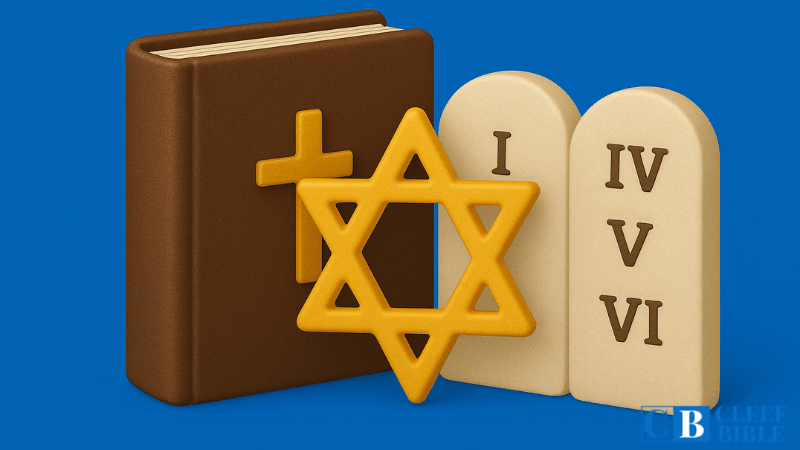
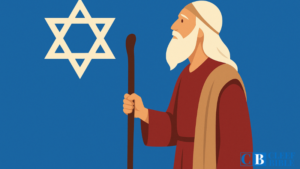
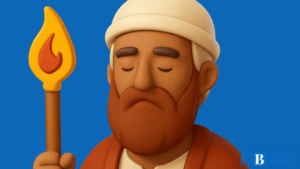

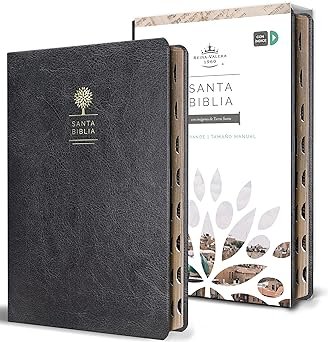








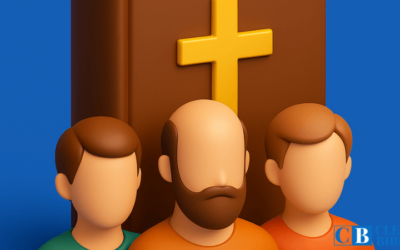
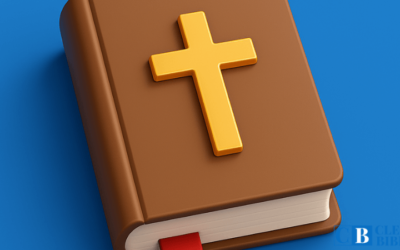


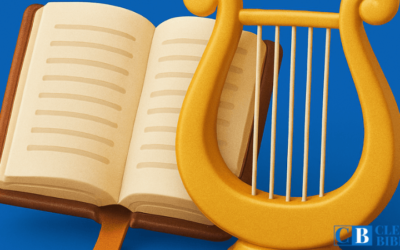





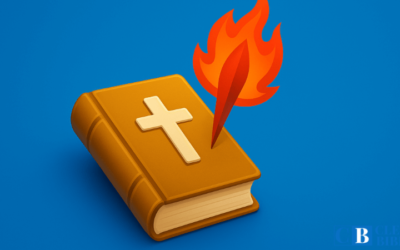
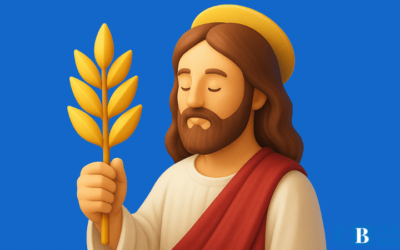
0 Comments